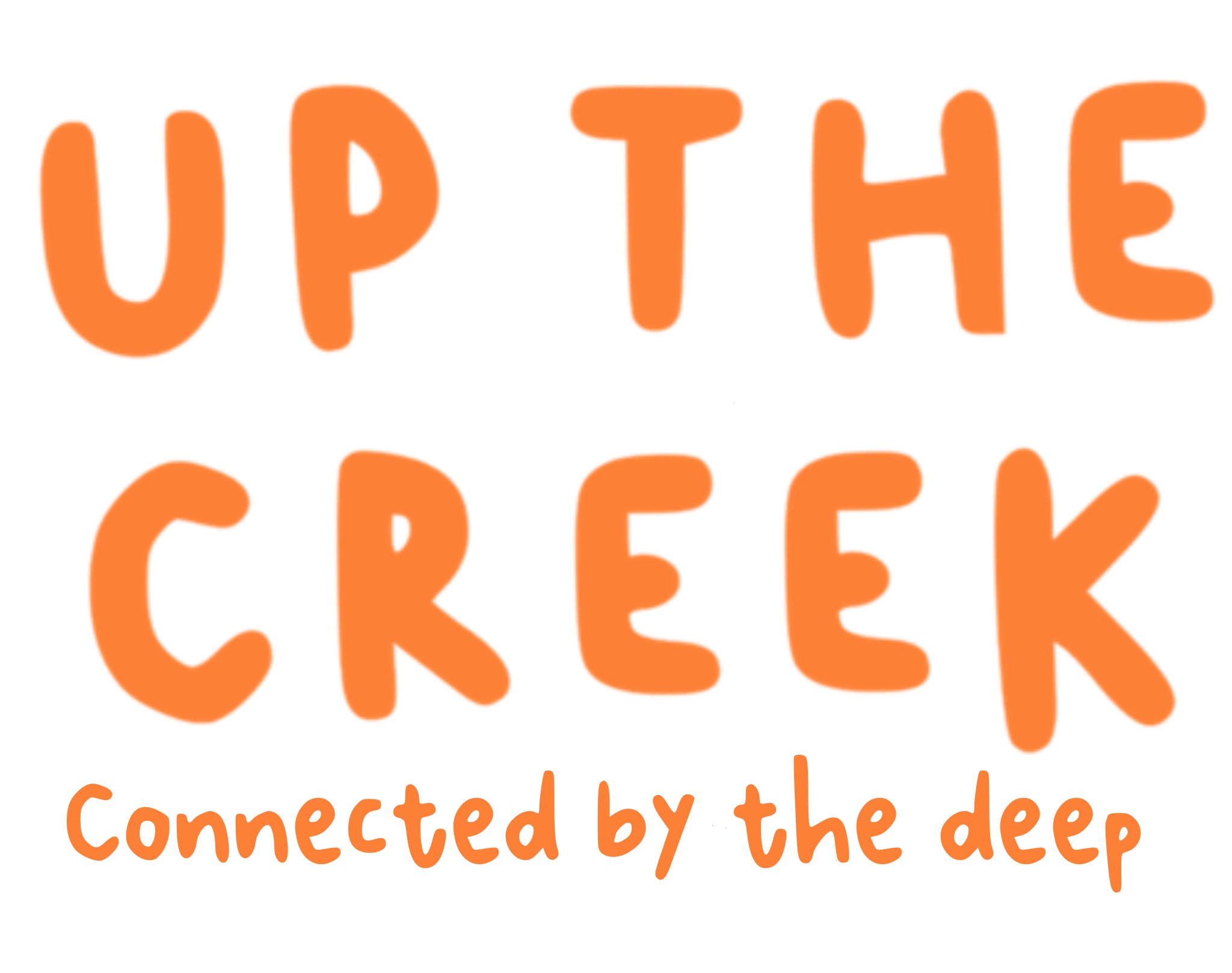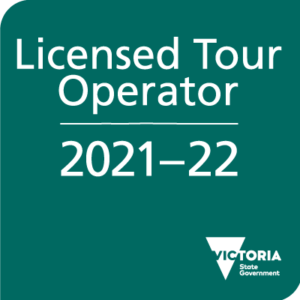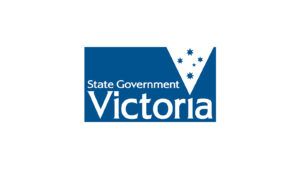Child Safe
Terms and conditions
Child Safety Policy
Purpose
Up The Creek (UTC) Child Safety Policy sets out the UTC ’s commitment and approach to creating and maintaining a child safe organisation where children and young people are safe and feel safe, and provides the policy framework for the UTC ’s approach to the Child Safe Standards.
Scope
This policy applies to all staff, volunteers, and contractors in the UTC environment, whether or not they work in direct contact with children or young people.
The policy will apply to the UTC environment (see Definitions section).
Definitions
Child abuse
Child abuse includes:
∙ any act committed against a child involving:
o a sexual offence; or
o grooming; and
∙ the infliction, on a child, of:
o physical violence; or
o serious emotional or psychological harm; and
∙ serious neglect of a child.
Child-connected work
Child-connected work means work authorised by the UTC , UTC council, or Secretary of the Department of Education and Training and performed by an adult in a UTC environment while children are present or reasonably expected to be present.
Child safety
Child safety encompasses matters related to protecting all children from child abuse, managing the risk of child abuse, providing support to a child at risk of child abuse, and responding to incidents or allegations of child abuse.
UTC environment
UTC operates as mobile camping clusters across the state of Victoria. while the program may be held inside, outside or as a mobile Journey, this policy applies to all UTC settings.
UTC staff
UTC staff means an individual working in a UTC environment who is:
∙ employed by UTC
∙ Visiting staff.
∙ a volunteer or a contracted service provider (whether or not a body corporate or any other person is an intermediary).
STATEMENT OF COMMITMENT TO CHILD SAFETY AND CHILD SAFETY PRINCIPLES
UTC is committed to the safety and wellbeing of all children and young people. This will be the primary focus of our care and decision-making. UTC is committed to the development of the whole child. Our approach, based on the UNHCR Timeless principles of learning, seek to empower children in the decision making process, rule setting and meaning making processes safely.
UTC Core values
-
Autonomy - Students are authentic participants in their experience
-
Developing - Students are developing habits of mind to support a life of learning
-
Empowered - Students are seen as important contributors and problem solvers
-
Considered - Learning environments are planed and organised to be Safe, Interesting and Curious for student engagement.
-
Resilience - seeing failure and setback as an opertunity for growth and development.
UTC has zero tolerance for child abuse.
We are committed to providing a child safe environment where children and young people are safe and feel safe, and their voices are heard about decisions that affect their lives. Our child safe policies, procedures, strategies and practices will be inclusive of the needs of all children, particularly Aboriginal and Torres Strait Islander children, children from culturally and linguistically diverse backgrounds, children with disabilities, LGBTQI+ and all children who are vulnerable.
Every person involved in UTC has a responsibility to understand the important and specific role they play individually and collectively to ensure that the wellbeing and safety of all children and young people is at the forefront of all they do and every decision they make.
Child safety principles
In its planning, decision-making and operations, UTC will:
-
Take a preventative, proactive and participatory approach to child safety;
-
Value and empower children to participate in decisions which affect their lives;
-
Foster a culture of openness that supports all persons to safely disclose risks of harm to children;
-
Respect diversity in cultures and child rearing practices while keeping child safety paramount;
-
Provide written guidance on appropriate conduct and behaviour towards children;
-
Engage only the most suitable people to work with children and have high quality staff and volunteer supervision and professional development;
-
Ensure children know who to talk with if they are worried or are feeling unsafe, and that they are comfortable and encouraged to raise such concerns;
-
Report suspected abuse, neglect or mistreatment promptly to the appropriate authorities;
-
Share information appropriately and lawfully with other organisations where the safety and wellbeing of children is at risk; and
-
Value the input of and communicate regularly with families and carers
-
Essential agreements at the commencement of programs seek to establish a child safe environment.
POLICY
Strategies to embed a child safe culture
UTC ’s culture encourages staff, students, parents and the UTC community to raise, discuss and scrutinise child safety concerns. This makes it more difficult for abuse to occur and remain hidden.
All child safety documents, including this policy, the Child Safety Code of Conduct the UTC ’s Child Safety Responding and Reporting Obligations (including Mandatory Reporting) Policy and Procedures, Identifying and Responding to All Forms of Abuse in Victorian UTC s and the Four Critical Actions for UTC s are readily available online and in hard copy In trip leaders Kit for all staff and students to read at any time.
Child safety is everyone’s responsibility. All UTC staff are required to:
∙ Act in accordance with the UTC ’s Child Safety Code of Conduct, which clearly sets out the difference between appropriate and inappropriate behavior
∙ Act in accordance with the Child Safety Responding and Reporting Obligations (including Mandatory Reporting) Policy and Procedures at all times, including following the Four Critical Actions for UTC s where necessary
∙ Undertake annual guidance and training on child safety
∙ Act in accordance with their legal obligations, including:
o Failure to disclose offense (applies to all adults)
o Duty of care (applies to all UTC staff)
o Mandatory reporting obligations (applies to all mandatory reporters, including teachers, principals, registered psychologists, and registered doctors and nurses)
o Failure to protect offense (applies to a person in a position of authority within the UTC )
o Reportable conduct obligations (applies to all UTC staff in reporting conduct to the principal, and applies to the principal in reporting to Employee Conduct Branch)
o Organisational duty of care (applies to the UTC as an organisation)
o For more information on these obligations, see Identifying and Responding to All Forms of Abuse in Victorian UTC s.
As part of UTC ’s child safe culture, UTC leaders will:
∙ Consider the diversity of all children, including (but not limited to) the needs of Aboriginal and Torres Strait Islander children, children from culturally and linguistically diverse backgrounds, children with disabilities, and children who are vulnerable, when implementing the Child Safe Standards
∙ Ensure that child safety is a regular agenda item at UTC leadership meetings and staff meetings
∙ Encourage and enable staff professional learning and training to build deeper understandings of child safety and prevention of abuse
∙ Ensure that no one is prohibited or discouraged from reporting an allegation of child abuse to a person external to the UTC or from making records of any allegation.
As part of Example UTC ’s child safe culture, UTC mandatory reporting staff are required to:
∙ Complete the Protecting Children – Mandatory reporting and other obligations online module every year.
∙ Read the UTC ’s Child Safety Code of Conduct on induction, and maintain familiarity with that document
∙ Read the UTC ’s Child Safety Responding and Reporting Obligations (including Mandatory Reporting) Policy and Procedures on induction, and maintain familiarity with that document
∙ Read the UTC ’s Child Safety Policy (this document) on induction, and maintain familiarity with that document.
As part of Example UTC ’s child safe culture, in performing the functions and powers given to them under the Education and Training Reform Act 2006, UTC councils and UTC council members will:
∙ Ensure that child safety is a regular agenda item at UTC meetings
∙ Consider the diversity of all children, including (but not limited to) the needs of Aboriginal and Torres Strait Islander children, children from culturally and linguistically diverse backgrounds, children with disabilities, and children who are vulnerable, when making decisions regarding the Child Safe Standards
∙ Undertake annual guidance and training on child safety, such as the Child Safe Standards UTC Council Training PowerPoint.
∙ Approve the Child Safety Code of Conduct to the extent that it applies to UTC council employees and members, and if updated, note the new document in its UTC council meeting minutes
∙ When hiring employees, ensure that selection, supervision and management practices are child safe (unless delegated to the principal).
UTC will maintain records of the above processes.
Roles and responsibilities
UTC leaders will ensure that each person understands their role, responsibilities and behaviour expected in protecting children and young people from abuse and neglect. Staff will comply with the UTC ’s Child Safety Code of Conduct, which sets out clearly the difference between appropriate and inappropriate behaviour.
Specific child safety responsibilities:
∙ Director is responsible for reviewing and updating the Child Safety Policy every 3years.
∙ Trip Leader is responsible for monitoring the UTC ’s compliance with the Child Safety Policy. The UTC community should approach Trip Leader if they have any concerns about the UTC ’s compliance with the Child Safety Policy.
∙ Director is responsible for informing the UTC community about this policy, and making it publicly available.
∙ Other specific roles and responsibilities are named in UTC ’s other child safety policies and procedures, including the Child Safety Code of Conduct, Child Safety Responding and Reporting Obligations (including Mandatory Reporting) Policy and Procedures, and risk assessment register.
Recruitment
UTC Requires all staff to hold a valid Working with children check or teacher registration.
UTC carries out reference checks on all new staff.
All Voulnteers are expected to abide by all UTC policy.
Training and supervision
Training and education is important to ensure that everyone in the UTC understands that child safety is everyone’s responsibility.
Our UTC culture aims for all staff and volunteers (in addition to parents/carers and children) to feel confident and comfortable in coming forward with any allegations or suspicions of child abuse or child safety concerns. We train our staff and volunteers to identify, assess, and minimise risks of child abuse and to detect potential signs of child abuse. This training occurs annually or more often as required.
We also support our staff and volunteers through ongoing supervision to develop their skills to protect children from abuse, to promote the cultural safety of Aboriginal and Torres Strait Islander children and children from linguistically and/or diverse backgrounds, and the safety of children with a disability and vulnerable children.
New employees and volunteers will be inducted into UTC , including by being referred to the Child Safety Policy (this document), the Child Safety Code of Conduct, and the Child Safety Responding and Reporting Obligations (including Mandatory Reporting) Policy and Procedures on the UTC website They will also be supervised regularly to ensure they understand our UTC ’s commitment to child safety, and that their behaviour towards children is safe and appropriate. All employees of our UTC will be monitored and assessed via regular performance review to ensure their continuing suitability for child-connected work. Any inappropriate behaviour will be reported by UTC staff to the Director or Trip leader and will be managed in accordance with UTC ’s Child Safety Responding and Reporting Obligations (including Mandatory Reporting) Policy and Procedures where required.
Reporting a child safety concern or complaint
The UTC has clear expectations for all staff and volunteers in making a report about a child or young person who may be in need of protection. All staff must follow the UTC ’s Child Safety Responding and Reporting Obligations (including Mandatory Reporting) Policy and Procedures, including following the Four Critical Actions for UTC s if there is an incident, disclosure or suspicion of child abuse. Immediate actions should include reporting their concerns to DHHS Child Protection, Victoria Police and/or another appropriate agency and notifying the principal or a member of the UTC leadership team of their concerns and the reasons for those concerns.
UTC will never prohibit or discourage UTC staff from reporting an allegation of child abuse. The UTC will always take action to respond to a complaint in accordance with the UTC ’s Child Safety Responding and Reporting Obligations (including Mandatory Reporting) Policy and Procedures. In accordance with Action 4 of the Four Critical Actions for UTC s, UTC will provide ongoing support for students affected by child abuse.
The Child Safety Responding and Reporting Obligations (including Mandatory Reporting) Policy and Procedures can be found at [hyperlink].
Risk reduction and management
UTC believes the wellbeing of children and young people is paramount, and is vigilant in ensuring proper risk management processes, found in the UTC ’s risk assessment register. The UTC recognises there are potential risks to children and young people and will take a risk management approach by undertaking preventative measures.
We will identify and mitigate the risks of child abuse in UTC environments by taking into account the nature of each UTC environment, the activities expected to be conducted in that environment and the characteristics and needs of all children expected to be present in that environment.
UTC monitors and evaluates the effectiveness of the actions it takes to reduce or remove risks to child safety, more information can be found in the UTC ’s risk assessment and Emergency management plan.
Listening to, communicating with and empowering children
UTC has developed a safe, inclusive and supportive environment that involves and communicates with children, young people and their parents/carers. We encourage child and parent/carer involvement and engagement that informs safe UTC operations and builds the capability of children and parents/carers to understand their rights and their responsibilities. Our UTC is committed to supporting and encouraging students to use their voice to raise and share their concerns with a trusted adult at any time of need. Students can access information on how to report abuse by talking directly to their teaher group leader or trip leader.
When the UTC is gathering information in relation to a complaint about alleged misconduct with or abuse of a child, the UTC will listen to the complainant’s account and take them seriously, check understanding and keep the child (and/or their parents/carers, as appropriate) informed about progress.
UTC will promote the Child Safe Standards in ways that are readily accessible, easy to understand, and user-friendly to children, including:
∙ All of our child safety policies and procedures will be available for the students and parents to read at Trip Leaders Kit.
∙ PROTECT Child Safety posters will be displayed across the UTC Offices and trailers.
∙ The Four Critical Actions are actively taught to mandatory reporters and UTC staff,
Communications
This UTC is committed to communicating our child safety strategies to the UTC community through:
∙ Ensuring that the Child Safety Policy (this document), Code of Conduct, and the Child Safety Responding and Reporting Obligations (including Mandatory Reporting) Policy and Procedure are available on the UTC website
∙ Ensuring that child safety is a regular agenda item at UTC meetings for discussion
∙
Confidentiality and privacy
UTC collects, uses and discloses information about particular children and their families in accordance with Victorian privacy law and other relevant laws. The principles regulating the collection, use and storage of information is included in the UTC privacy policy.
Related policies and documents
Related policies and documents include:
∙ Code of Conduct
∙ Child Safety Responding and Reporting Obligations (including Mandatory Reporting) Policy and Procedures.
∙ Risk assessment register
∙ Identifying and Responding to All Forms of Abuse in Victorian UTC s
∙ Four Critical Actions for UTC s
∙ Recording your actions: Responding to suspected child abuse – A template for Victorian UTC s
∙ Identifying and Responding to Student Sexual Offending
∙ Four Critical Actions for UTC s: Responding to Student Sexual Offending
∙ Policy and Advisory Library – Duty of Care
∙ Policy and Advisory Library – Child Protection Reporting Obligations
∙ UTC Privacy policy.
Policy evaluation and review
To ensure ongoing relevance and continuous improvement, this policy will be reviewed every 3years. The review will include input from the UTC community.
Approval
UTC Director: Derek Cook
Date of last review: 1/2/2022









